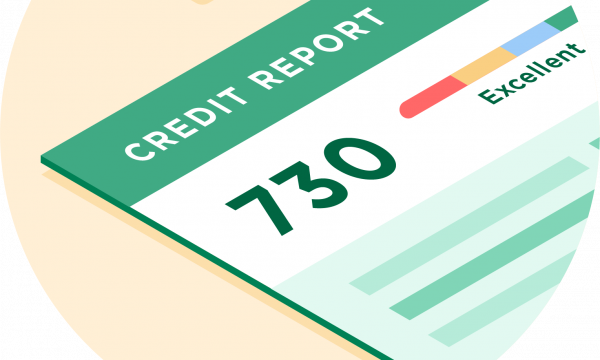What Is Credit History?
Credit history is your personal record of managing credit, which is documented in credit reports. These details are used to calculate your credit score.

Many, or all, of the products featured on this page are from our advertising partners who compensate us when you take certain actions on our website or click to take an action on their website. However, this does not influence our evaluations. Our opinions are our own. Here is a list of our partners and here's how we make money.
Credit history is a record of how you’ve managed the repayment of debts, such as credit cards and loans. Your credit history is recorded in your credit reports, which also contain additional information about your finances that lenders use to determine your creditworthiness.
Credit history definition
Your credit history shows how you’ve managed credit, loans and other financial obligations using data reported by lenders. That information is laid out in your credit reports, which are produced by the three main credit bureaus: Experian, Equifax and TransUnion.
Your credit history consists of information such as:
- How many accounts you’ve had, both open and closed. An account on a credit report is also called a credit tradeline.
- What types of accounts you have, also known as your credit mix. You may have a combination of revolving credit (i.e., credit cards or a home equity line of credit) and installment credit (i.e., mortgage, auto or student loans).
- How much you owe on each account.
- Your payment history, which shows whether you paid your bills on time, as well as negative marks such as delinquencies or accounts in collections.
» Want to check your credit history? Get your free credit report from NerdWallet
Why is credit history important?
Your credit history is typically the first thing potential lenders assess when considering your application for a new financial product or service. Your ability to pay your bills on time and repay money you’ve borrowed signals to lenders that you are less risky. Your credit history also affects your credit score. Companies like FICO and VantageScore use the data directly from your credit reports to generate your score.
Having a positive credit history establishes a solid foundation for your financial health and will pave the way for greater opportunities — and at lower rates.
Someone with bad credit history has a record of derogatory marks such as missed payments, an account in collections, bankruptcy, repossession or foreclosure. Negative marks make it difficult to get loans, get approved for a new credit card, rent an apartment or qualify for a mortgage.
However, financial missteps don’t have to leave a permanent stain. With time, patience and consistency, there are concrete steps that can build a positive credit history.
» No credit history? Learn how to build credit
How to build good credit history
Building positive credit history takes time, but there are some tried and true ways to do it:
- Pay your bills in full each month. Payment history is hugely important in credit score calculations, and a payment missed by more than 30 days can stay on your credit report for seven years.
- Keep an eye on your credit limits. You want to try to utilize 30% or less of the total credit available to you on your credit cards. Spending that creeps above that threshold can ding your credit score.
- Space out credit applications. Too many “hard pulls” from lenders can drop your score if they’re too close together. Spacing out applications every six months will help you avoid credit score damage.
- Pay attention to your oldest credit card. A longer credit history is better, so even if you don’t use that card often, keep it active with a small, recurring charge.
- Consider a mix of credit types. Once you have established a strong financial routine, start adding different kinds of credit to your portfolio. A balance of credit cards and other loans, like auto loans, student loans and a mortgage, are rewarded by credit scoring companies.
Lastly, regularly check your credit score and credit reports and dispute credit report errors in a timely manner.
» LEARN: Which credit score factors have the biggest impact?
Stress less. Track more.
See the full picture: savings, debt, investments and more. Smarter money moves start in our app.
Frequently Asked Questions
What is a credit history vs. credit report?
Think about your credit reports as detailed records of your credit history, or ability to manage credit. They include your payment history, a list of accounts and their balances and any negative marks like bankruptcy, repossession or collections. This financial behavior is your credit history, but credit reports also include other information such as your name(s), current and old addresses, and your employment history.
Credit reports are data files generated by the three major credit bureaus — Experian, Equifax and TransUnion — which collect information from your creditors.
What is the difference between credit history and credit score?
Your credit score is a number calculated from the information recorded in your credit reports, which contain your history of managing credit. While your credit score doesn’t appear on your credit reports, credit scoring companies rely on the data from those reports to produce a number between 300 and 850 used by lenders to assess your creditworthiness.
Your credit history and credit score work in tandem — positive elements on your credit report — on-time payments, low credit utilization and a mix of credit types — will help build a stronger credit score. Alternatively, negative marks on your credit report will harm your score.
Article sources
NerdWallet writers are subject matter authorities who use primary,
trustworthy sources to inform their work, including peer-reviewed
studies, government websites, academic research and interviews with
industry experts. All content is fact-checked for accuracy, timeliness
and relevance. You can learn more about NerdWallet's high
standards for journalism by reading our
editorial guidelines.
Related articles







